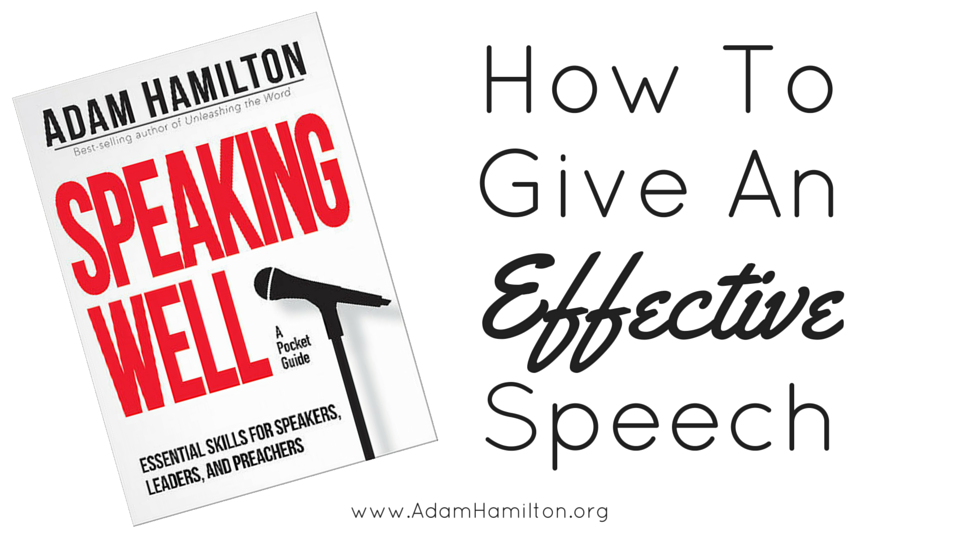Best Practices for Effective Public Speakers
Eat, sleep, pray, and listen. This tip is probably the most obvious—but sometimes the most neglected—for speakers. You can have the best material and be well prepared, but if your body has not had adequate sleep, fluids, and nutrients, you’ll not be your best. Make it your standard practice to get at least seven hours of sleep before speaking at an important event (which includes, for you preachers, getting to bed early on Saturday nights in preparation for Sunday worship). Eat a nutritious breakfast. Drink plenty of fluids. These simple practices are essential to effective speaking. Two other practices seem self-evident, but even preachers often miss them: speakers need to make adequate time in their lives for prayer and reflection. In order to prepare and then deliver excellent messages, it is essential for a speaker to have time to think about and reflect upon the ideas that will go into a speech or sermon. And it is essential to spend time praying and inviting God to guide, lead, and speak to you. Reflection takes time, and the practice often gets crowded out of our busy lives. But taking the time to mull over points, to pray and meditate, and to study always results in deeper, more well-developed messages. Great material and thorough preparation are important, but if you neglect your own physical and spiritual well-being, you will fall short of your best as a speaker. Develop healthy habits to make sure you are nourished in every way, and your speaking will be more effective and satisfying. Read the other three posts in this series: How to Give an Effective Speech Effective Public Speaking Using 3 Main Points Effective Public Speaking Involves More Than Words Get more tips for effective public speaking in my new book, Speaking Well: Essential Skills for Speakers, Leaders, and Preachers.



